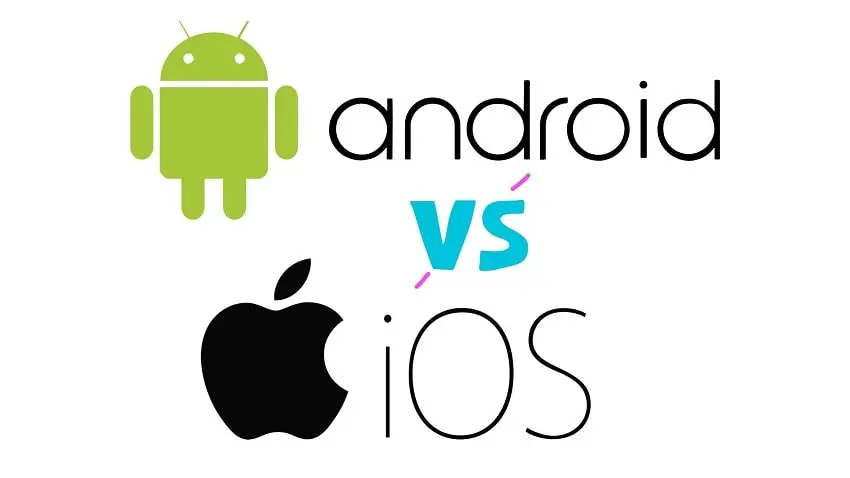
Table of Contents
Introduction
The digital age has seen the rise of two mobile operating systems that dominate the market—Android vs iOS. From their inception to their current state, these platforms have continually advanced, redefining how we interact with our devices. But which one is truly superior?
Whether you’re a tech enthusiast, a mobile user looking for your next phone, or an app developer deciding where to invest your time and resources, understanding the nuances of Android and iOS is crucial. In this blog post, we’ll explore the history, user experience, app ecosystem, security, hardware integration, updates, and cost of each system to help you make an informed decision.
A Brief History and Current Market Share
The Origins
Android, developed by Google, made its debut in 2008. It quickly became popular for its open-source nature, allowing manufacturers to customize it. iOS, on the other hand, was introduced by Apple in 2007 with the launch of the first iPhone. Known for its seamless integration and user-friendly interface, it has remained a favorite among many users.
Market Share Dynamics
As of 2023, Android holds around 72% of the global market share, while iOS captures approximately 26%. This disparity is largely due to Android’s availability on a wide range of devices from various manufacturers, whereas iOS is exclusively available on Apple devices.
Evolution Over Time
Both platforms have evolved significantly. Android has focused on customization and flexibility, while iOS has honed its user experience and ecosystem integration. These changes have solidified their positions as leaders in the mobile OS market.
Comparison of User Experience
Interface
Android offers a highly customizable interface, allowing users to tweak almost every aspect of their device. Widgets, themes, and launchers provide a personalized experience. Conversely, iOS prioritizes simplicity and consistency. Its intuitive design ensures that even the least tech-savvy users can navigate with ease.
Customization
When it comes to customization, Android is the clear winner. Users can change their home screen layout, install third-party apps, and even modify the system settings. iOS, while more restrictive, ensures that all apps and settings maintain a uniform look and feel.
Ease of Use
Both systems are user-friendly, but in different ways. Android’s flexibility might be daunting for some, but it offers unparalleled control. iOS, with its straightforward design, provides a seamless experience out of the box.
App Ecosystem
App Stores
The Google Play Store and Apple App Store are the primary sources for apps on Android and iOS, respectively. The Play Store boasts a larger number of apps, but the App Store is known for its stringent quality control, resulting in a better user experience.
Availability
Android apps are often available on multiple devices due to the platform’s openness. iOS apps, however, are optimized specifically for Apple devices, ensuring consistent performance across the board.
Quality of Apps
While both app stores have high-quality apps, the App Store’s rigorous approval process often results in more polished and reliable applications. However, the Play Store’s lenient policies allow for a broader range of apps, catering to niche markets.
Security and Privacy
Security Features
iOS is renowned for its robust security features. Apple’s closed ecosystem and regular updates minimize vulnerabilities. Android, despite being more prone to malware due to its open nature, has significantly improved its security measures over the years with features like Google Play Protect.
Privacy Policies
Privacy is a major focus for both platforms. Apple emphasizes user privacy, often highlighting its commitment in marketing campaigns. Android, under Google’s guidance, has also made strides in protecting user data, offering detailed privacy controls and regular patches.
Real-World Implications
In practical terms, both systems are secure enough for everyday use. However, users who prioritize privacy and security above all else might lean towards iOS.
Hardware Integration
Device Compatibility
Android’s strength lies in its versatility. It runs on a vast array of devices, from budget phones to high-end flagships. iOS, limited to Apple devices, ensures tight integration with hardware, resulting in optimal performance.
Accessories
Both ecosystems offer a plethora of accessories. Android users have a wider range of third-party options, while Apple provides a seamless experience with its proprietary accessories like AirPods and Apple Watch.
Ecosystem Synergy
Apple’s ecosystem is unparalleled. The seamless interaction between iPhones, iPads, Macs, and Apple Watches creates a cohesive user experience. Android, though diverse, is catching up with solutions like Google Home and Wear OS.
Updates and Support
Frequency of Updates
iOS devices receive regular and timely updates, often for several years after release. This ensures that even older devices stay up-to-date with the latest features and security patches. Android updates, though improving, are often delayed by manufacturers and carriers.
Longevity
Apple typically supports devices for up to five years, providing both feature updates and security patches. Android support varies by manufacturer, with some offering only two to three years of updates.
User Experience
Consistent updates translate to a better user experience. iOS users benefit from uniform updates, while Android users might experience fragmentation due to varied update schedules.
Cost and Value
Initial Investment
Android devices cover a broad price range, from budget options to premium flagships. iOS devices, while generally more expensive, offer a high level of quality and performance across the board.
Long-Term Value
iOS devices tend to retain their value longer, thanks to consistent updates and strong brand loyalty. Android devices, though initially cheaper, might require more frequent replacements or upgrades.
For Developers
App developers might find the closed nature of iOS challenging but rewarding, as App Store users typically spend more on apps. Android offers a larger user base but faces issues with fragmentation and inconsistent device performance.
Conclusion
In the battle of Android vs iOS, there is no definitive winner. Each platform has its strengths and weaknesses, catering to different user needs and preferences.
For tech enthusiasts, the choice might come down to customization vs. integration. Mobile users seeking a straightforward, reliable experience might lean towards iOS, while those who value flexibility might prefer Android. App developers should consider their target audience and potential ROI when choosing a platform.
Ultimately, the best choice is the one that aligns with your specific needs and preferences. Ready to explore more? Sign up to Jasper for free today and discover how AI can enhance your mobile experience!


